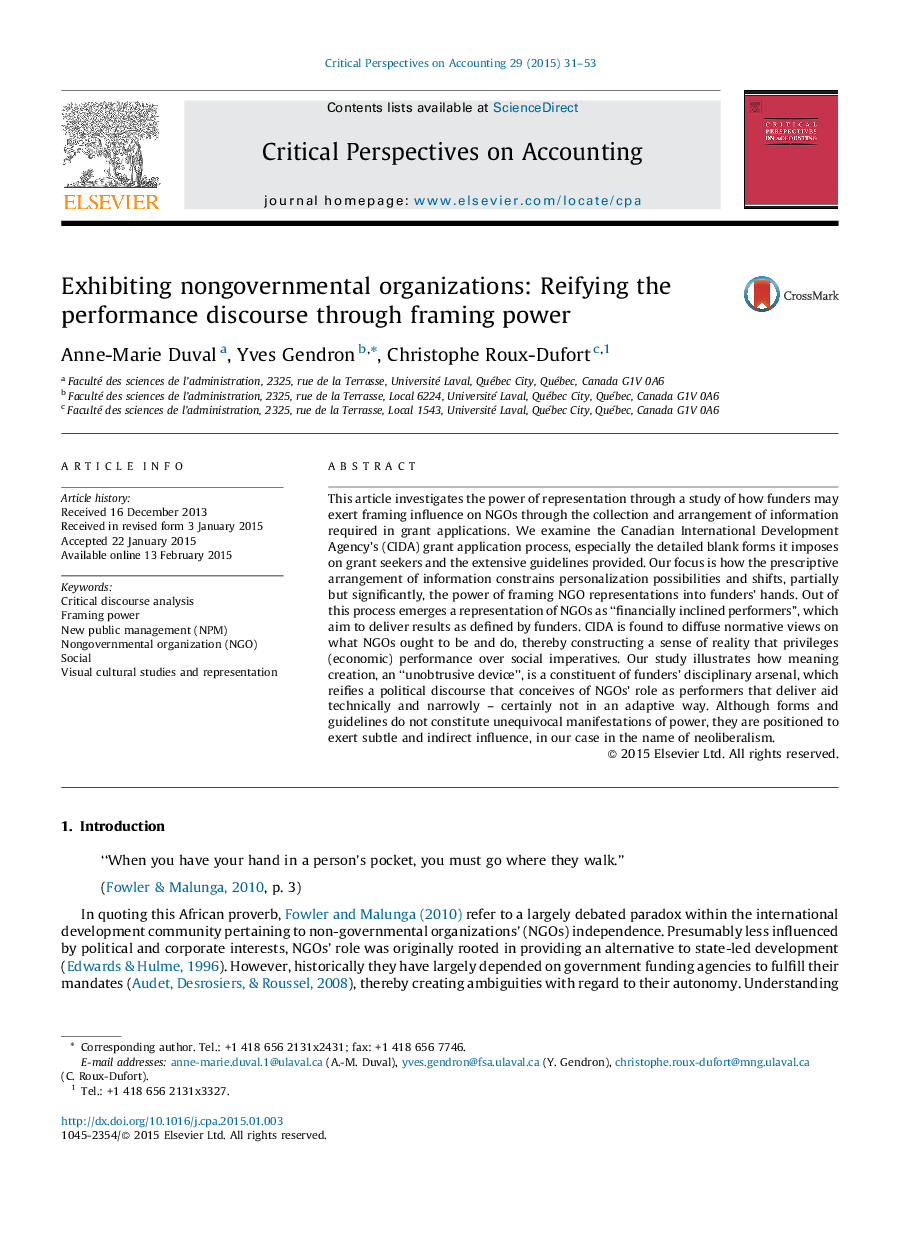ترجمه فارسی عنوان مقاله
برگزاری نمایشگاه سازمان های غیردولتی: گفتمان عملکرد از قدرت شکل دهی طریق
عنوان انگلیسی
Exhibiting nongovernmental organizations: Reifying the performance discourse through framing power
| کد مقاله | سال انتشار | تعداد صفحات مقاله انگلیسی |
|---|---|---|
| 42765 | 2015 | 23 صفحه PDF |
منبع

Publisher : Elsevier - Science Direct (الزویر - ساینس دایرکت)
Journal : Critical Perspectives on Accounting, Volume 29, June 2015, Pages 31–53
ترجمه کلمات کلیدی
تحلیل گفتمان انتقادی - قابسازی قدرت - مدیریت عمومی جدید (NPM) - سازمان های غیر دولتی (NGO) - اجتماعی - مطالعات فرهنگی و نمایندگی های بصری
کلمات کلیدی انگلیسی
Critical discourse analysis; Framing power; New public management (NPM); Nongovernmental organization (NGO); Social; Visual cultural studies and representation

